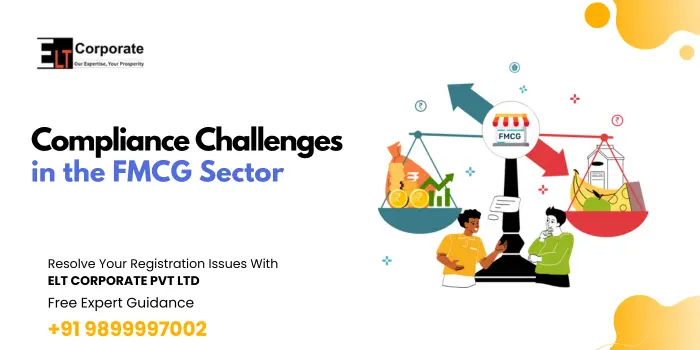In the fast-moving consumer goods (FMCG) sector, much of the business depends on ensuring that what you see is what you get. When purchasing packaged products, loose goods (such as fruits or grains), or services by weight (like fuel), consumers rely on weighing and measuring instruments to be accurate and reliable. However, FMCG companies face numerous challenges in staying compliant with legal metrology laws, including measurement verification, stamping, model approval, labelling, and maintaining consumer trust. This article explores those challenges, why they matter, and how companies can overcome them.
What are weighing and measuring instruments in FMCG?
Weighing instruments might be scales (kitchen scales, shop scales, weighbridges), measuring instruments include meters, volumetric measures, dispensers, etc. In FMCG, they are used for:
- Packaging pre-weighed/pre-measured goods (e.g. 500-g rice packets, 1-litre oil bottles).
- Selling by weight or measure (fruits, vegetables, grains, liquids).
- Measuring is used in process control (e.g. filling machines, dosing).
Because mistakes or tampering in these can affect product quantity, cost, consumer satisfaction, trust, and legal liability.
Key Regulatory & Legal Framework (India context as example)
Some key laws and rules:
- Legal Metrology Act, 2009 – main law in India governing weights and measures.
- Legal Metrology (General) Rules, 2011 – details on instruments, verification, stamping, model approval.
- Legal Metrology (Packaged Commodities) Rules, 2011 – rules about packaged goods: net quantity declaration, labelling etc.
Note: Many other countries have similar legal metrology laws, though specifics differ.
What are the Major Challenges (pain points) in FMCG for Weighing/Measuring Compliance?
Here are the biggest challenges companies face:
- Model Approval & Licensing Delays
Before manufacturing or importing weighing or measuring instruments, businesses need model approval from metrology authorities and appropriate licences. Sometimes there are long delays or bureaucratic bottlenecks. Failure to get approval invalidates use or sale.
- Verification & Stamping
Each weighing/measuring instrument must be verified by the authority and stamped. Also, periodic re-verification is required (annual or as per rules). Many devices run without valid verification, or the stamping is expired or missing.
- Accuracy & Calibration Issues
Instruments drift over time, get tampered with, or are misused. Environmental factors (dust, humidity, vibration) affect accuracy. FMCG processes (fast filling, high speed) can exacerbate errors. Keeping calibration consistent is tough.
- Labelling and Net Quantity Declarations
For pre-packaged goods, correct net quantity declarations, proper labelling (including declarations like MRP, weight, manufacturing/importer information) are mandatory. Mislabelled pack weights or misleading packaging (looks like more than actual) are common compliance failures.
- E-commerce / Online Sales Complexity
FMCG goods sold via e-commerce platforms pose additional risk: instruments used, packaging, units declared, etc. Some manufacturers or importers selling instruments (scales, etc.) online do so without model approval or required stamping. Also, goods sold online may misstate weights or fail to declare packed commodities correctly.
- Enforcement & Inspection Gaps
Though laws exist, enforcement is uneven. Some places have frequent inspections; others don’t. Lack of capacity, under-staffed metrology departments, and delays in follow-ups. Traders sometimes use unverified scales because inspectors are rare.
- Financial Costs & Record-Keeping
Cost of verification, calibration, stamping, renewing licenses, labelling changes, etc., add up. Also, keeping proper documentation: logs of sales, numbers, quantities, and model approvals. For small FMCG firms, the cost/administrative burden can be big.
- Consumer trust and reputational risk
If consumers believe they are under-measured or cheated, trust erodes. Social media amplifies the misweigh controversy. Recalls or legal penalties damage the brand. Also heavier regulatory scrutiny.
Why these Challenges matter?
- Legal & financial risk: Non-compliance can lead to fines, show-cause notices, seizure of goods, and even imprisonment.
- Consumer rights: Consumers are legally entitled to get what they pay for. Inaccurate instruments violate consumer protection laws.
- Marketplace fairness: Firms that cut corners get an unfair advantage; legal rules attempt level playing field.
- Brand reputation & trust: Repeated non-compliance reduces trust, harms brand value.
- Operational disruptions: If equipment fails verification, stamping expires, or model approval is missing, it could lead to stoppage, re-labelling, and rework.
Practical tips to overcome compliance challenges
Here are actions FMCG businesses can take to manage and reduce these challenges:
1. Start with a compliance audit – Conduct internal audit of all weighing/measuring instruments (accuracy, calibration dates, stamping, model approval). Identify gaps.
2. Maintain a register of instruments – Record every instrument: model, manufacturer, date of purchase, verification/stamping expiry, calibration history. Enables proactive renewal.
3. Use certified / compliant equipment from manufacturers with model approval – Only buy instruments whose models are approved and licensed. Avoid cheap or unverified imports.
4. Scheduled calibration and verification – Don’t wait for expiry or notice; set reminders. Ensure the environment (floor, vibration, cleanliness) supports accuracy.
5. Training of staff – Make sure people who handle instruments know correct use, zeroing scale, avoiding overload, handling, and cleaning.
6. Update labelling & packaging clearly – For pre-packaged products, ensure net quantity, weight declarations, MRP, etc are correct and visible. Regular review to reflect regulation changes.
7. Monitor regulatory updates – Laws, rules, and amendments may change. For example, pack rules, measurement units, and online sales declarations. Stay in touch with the local legal metrology department or regulatory consultants.
8. Leverage technology where possible – Digital dashboards to track instrument status, mobile or IoT‐based measurement monitoring, automated alerts for calibration expiry.
9. Engage with authorities proactively – Maintain good communication with metrology departments. Seek help when unsure; sometimes, pre-approval or clarifications avoid later penalties.
Case Examples/Real-Life Incidents
- In India, the government issued 63 show-cause notices to manufacturers/importers of weighing & measuring instruments being sold on e-commerce platforms without complying with model approval, importer/manufacturer licensing, and verification/ stamping norms.
- In Thiruvananthapuram district, ~5,000 cases were registered in one financial year against traders for uncertified weighing machines; they also sold under-weighted products, and fines were imposed
Conclusion
The Challenges in the FMCG Sector around weighing and measuring instruments are real and significant. They touch legal risk, consumer trust, cost, and operational viability. But with a systematic approach—audit, record-keeping, compliance with model approvals, training, use of certified instruments, staying current on regulations—companies can reduce risk and maintain compliance. For FMCG businesses, weighing/measuring compliance should not be an afterthought but part of core operations quality management.
What happens if an FMCG company uses an unverified weighing scale?
They can face legal penalties (fines, show-cause notices), seizure of goods, and loss of consumer trust.
How often must weighing/measuring instruments be re-verified / recalibrated?
It depends on local laws, but typically annually or as mandated; failure to do so makes them non-compliant.






